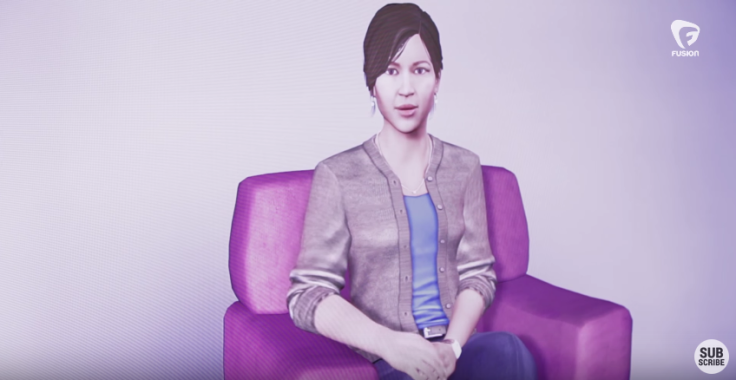Therapy As A Virtual Reality? Psychologists Develop Virtual Human To Help Ease Anxiety, Depression

When you think about therapy, what comes to mind? It wouldn't be surprising to see a nice, big, comfortable-looking couch with someone laying down on it with their eyes closed, speaking to their therapist. Whatever your idea of therapy may be, throw it out the window. Psychologists and software developers have come together at the University of Southern California’s Institute for Creative Technologies to create Ellie, a virtual therapist.
“As I talk, Ellie is reading my facial expressions, my vocal patterns, and my body posture,” Cleo Stiller, host of Asking For A Friend, said in the video. “She’s also interpreting my speech in real time. Am I using positive or negative language? She adjusts her questions based off of my responses.”
In creating Ellie, the researchers are hoping to allow people to open up more about their problems in front of a machine, instead of a live person.
The video also describes a different, video game-like therapy, that has users walk through a mock doctor’s office and answer yes or no and multiple choice questions about how they’re currently feeling. The program, called eSmart, was created by Emory University in part “to address the stigma around therapy,” Stiller said.
Don’t fret about robots or virtual reality simulations taking away jobs or the human element of a real therapist, either. According to Skip Rizzo, director for virtual reality at USC’s Institute for Creative Technologies, simulated programs will be more of an assistant to human therapists, “You see your shrink once a week, but during the week, you’ve got somebody you can talk to.”



























